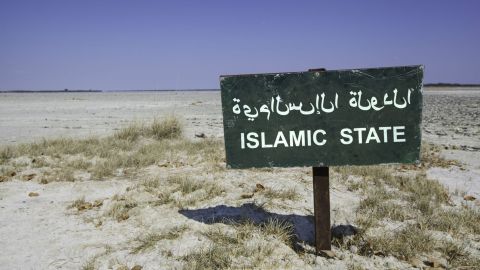Just How Islamic Is ISIS?

Reacting to episodes of brutality displayed by the group calling itself the Islamic State, or ISIS, Barack Obama said this at a White House summit on Countering Violent Extremism:
“We are not at war with Islam. We are at war with people who have perverted Islam … They try to portray themselves as religious leaders, holy warriors in defense of Islam. We must never accept the premise that they put forward because it is a lie. Nor should we grant these terrorists the religious legitimacy that they seek. They are not religious leaders. They are terrorists.”
This is not the first time Obama has tried to delegitimize the Islamic State by denying its religious credentials. He repeatedly drives a wedge between Islam and ISIS by portraying the former as a “religion of peace” in contrast to the latter, whose brutal beheadings, immolations, and mass shootings — along with successful recruiting efforts and territory grabs through Syria, Iraq, Libya and elsewhere — have been widely publicized to the horror of onlooking Muslims and non-Muslims alike.
“What ISIS Really Wants,” a long, revealing article by Graeme Wood published in the March 2015 issue of The Atlantic takes issue with part of Obama’s position regarding the Islamic State. Yes, Wood agrees, “Muslims can reject the Islamic State; nearly all do.” And it is comforting, he writes, that “[m]any mainstream Muslim organizations have gone so far as to say the Islamic State is, in fact, un-Islamic.” It is a relief that “the vast majority of Muslims have zero interest in replacing Hollywood movies with public executions as evening entertainment.”
But to say that most Muslims oppose the tactics and aims of ISIS is not to say, Wood warns, that ISIS is just a bunch of thugs with Kalashnikovs. It is dangerous to misconstrue the group as al-Qaeda’s “JV team,” as Obama said a year ago, or as a group that recruits desperate teens and turns them into mindless jihadis. “The reality,” writes Wood, “is that the Islamic State is Islamic. Very Islamic.”
“Yes, it has attracted psychopaths and adventure seekers, drawn largely from the disaffected populations of the Middle East and Europe. But the religion preached by its most ardent followers derives from coherent and even learned interpretations of Islam.”
Far from using Islam as a mere facade for bloodlust, Wood found, the Islamic State’s interpretations of Koranic teachings are fundamental to its mission. The beheadings, immolations, and the rest are very much religiously inspired. A professor at Princeton, Bernard Haykel, told Wood that “the ranks of the Islamic State are deeply infused with religious vigor.”:
“Koranic quotations are ubiquitous. ‘Even the foot soldiers spout this stuff constantly,’ Haykel said. ‘They mug for their cameras and repeat their basic doctrines in formulaic fashion, and they do it all the time.’ He regards the claim that the Islamic State has distorted the texts of Islam as preposterous, sustainable only through willful ignorance. ‘People want to absolve Islam,’ he said. ‘It’s this “Islam is a religion of peace” mantra. As if there is such a thing as “Islam”! It’s what Muslims do, and how they interpret their texts … And these guys have just as much legitimacy as anyone else.’ “
Some on the left are criticizing Wood for falling “prey to an inaccurate trope all too common in many Western circles: that ISIS is an inevitable product of Islam, mainly because the Qur’an and other Islamic texts contain passages that support its horrific acts.” This contention, voiced by Jack Jenkins at Think Progress, paints Wood as a journalist who has been duped by ISIS propaganda. Worse, Jenkins writes, Wood’s article and pieces like it “inadvertently validate ISIS’ voice” by giving a stamp of approval to its literal readings of Koranic verses instructing Muslims to kill in the name of religion.
These criticisms are only partially on the mark. It is one thing to say that ISIS’ religious ideology has “just as much legitimacy as anyone else’s.” That is pure postmodern trash; there are better and worse interpretations of faith traditions, and it is conceding way too much to give “behead and burn” the same credence as mainstream interpretations of Islam according to which people treat each other with respect and honor.
But Jenkins’ critique misses Wood’s more basic point that ISIS is dead serious about what it perceives as its Islamic mission to re-establish the caliphate and bring on the End of Days. We may despise and revile the ISIS ideology, but it is no milquetoast set of ideas and principles. The leaders of the Islamic State are literally gunning to win a messianic battle, and the rest of the world will find it hard to resist them if it misunderstands their mission.
Image credit: Shutterstock.com




